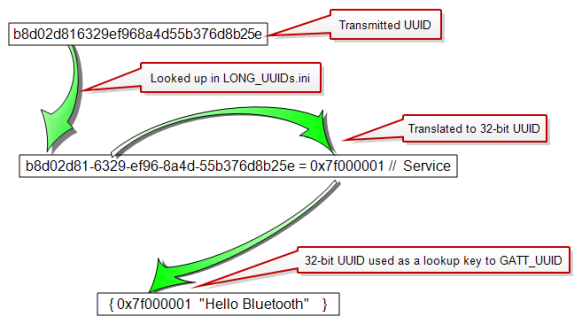

- 128 BIT UUID GENERATOR GENERATOR
- 128 BIT UUID GENERATOR REGISTRATION
- 128 BIT UUID GENERATOR ISO
- 128 BIT UUID GENERATOR MAC
A version 4 UUID is made up of 32 hexadecimal characters (128 bits), divided into five groups separated by hyphens in this format: xxxxxxxx-xxxx-xxxx-xxxx-xxxxxxxxxxxx.
128 BIT UUID GENERATOR GENERATOR
This UUID generator generates a version 4 universally unique identifier. What version UUID generator is this tool? Both UUIDs and GUIDs are generated according to a standard, using a combination of random numbers, timestamps and algorithms, all of which makes it extremely unlikely that two values will be equal. You may also see the term GUID (Globally Unique Identifier) which is also commonly used. UUID Frequently Asked Questions What is a UUID?Ī UUID (Universally Unique Identifier) is a string of characters that is used to uniquely identify an object. They enable efficient tracking and correlation of log messages across multiple systems or services, facilitating debugging and troubleshooting activities.

According to Wikipedia, “for there to be a one in a billion chance of duplication, 103 trillion version 4 UUIDs must be generated.” UUID is an Internet Engineering Task Force standard described by RFC 4122. Although the probability of UUID duplication exists, it is negligible.
128 BIT UUID GENERATOR REGISTRATION
UUIDs are 128-bit numbers that are for most practical purposes unique, without depending on a central registration authority for ensuring their uniqueness. A standard uuid library would benefit developers that currently have to either use operating system specific APIs for creating new uuids or resort to 3rd party libraries, such as boost::uuid.

Universally unique identifiers (uuid), also known as Globally Unique Identifiers (guids), are commonly used in many types of applications to uniquely identify data.
128 BIT UUID GENERATOR MAC
This implementation is supported on all major operating systems: Windows, Linux and Mac OS. I have made an implementation of the library, which is called stduuid, and again, it available on github.
128 BIT UUID GENERATOR ISO
I got lots of great feedback that shaped the formed of the proposal from people on the ISO C++ Standard – Future Proposals forum. The design of the library is inspired by the Boost Uuid Library and the Crossuuid library. The library is called uuid and the paper, P0959R0 – A Proposal for a Universally Unique Identifier Library, is available on Github. I have recently submitted a proposal for a new standard library for universally unique identifiers.


 0 kommentar(er)
0 kommentar(er)
